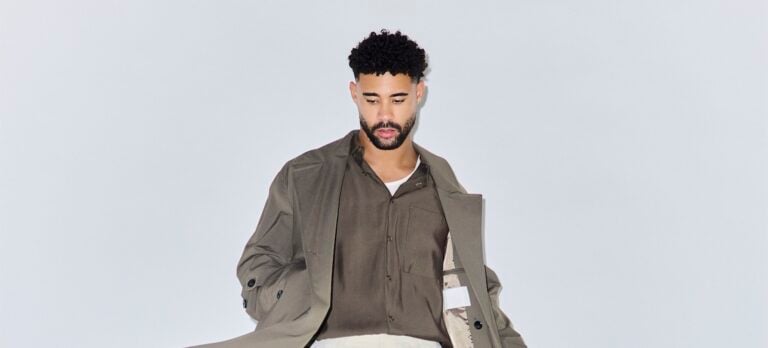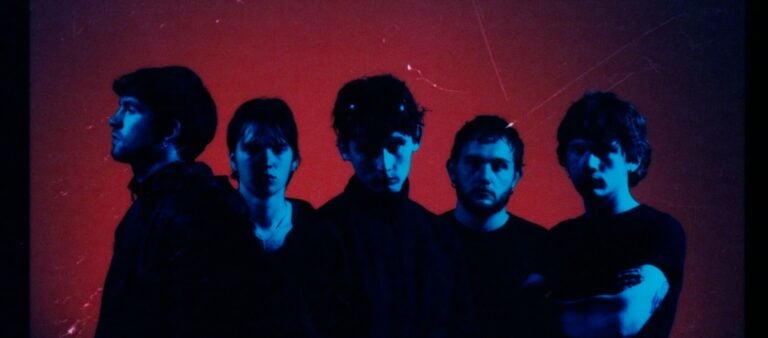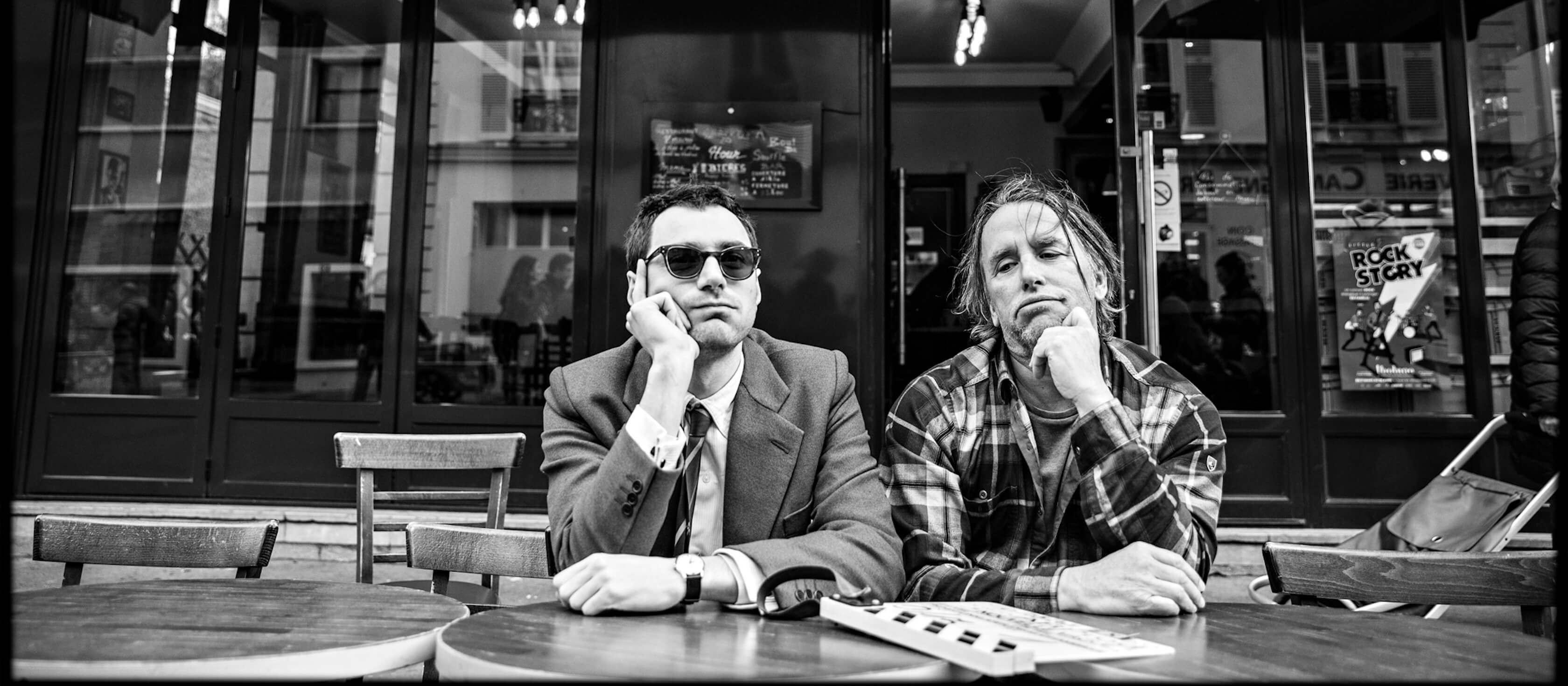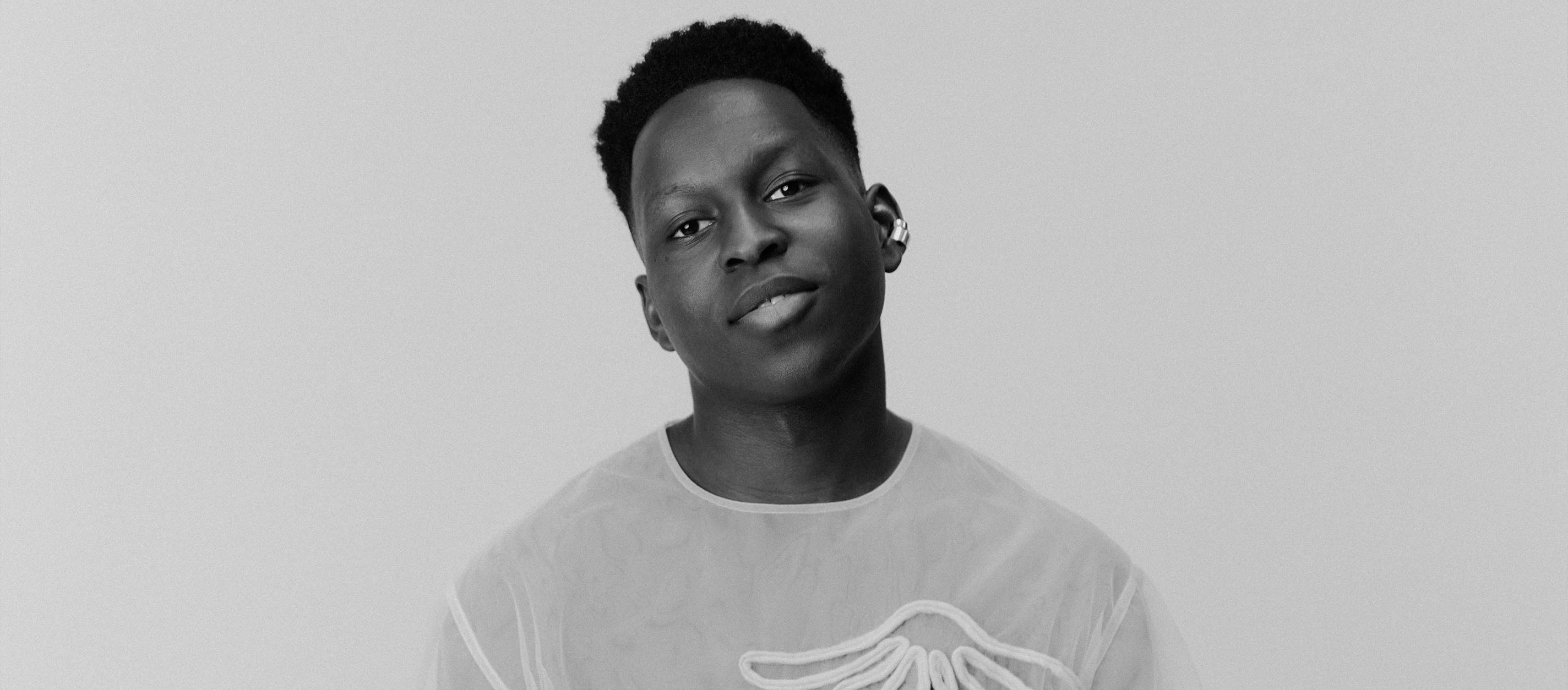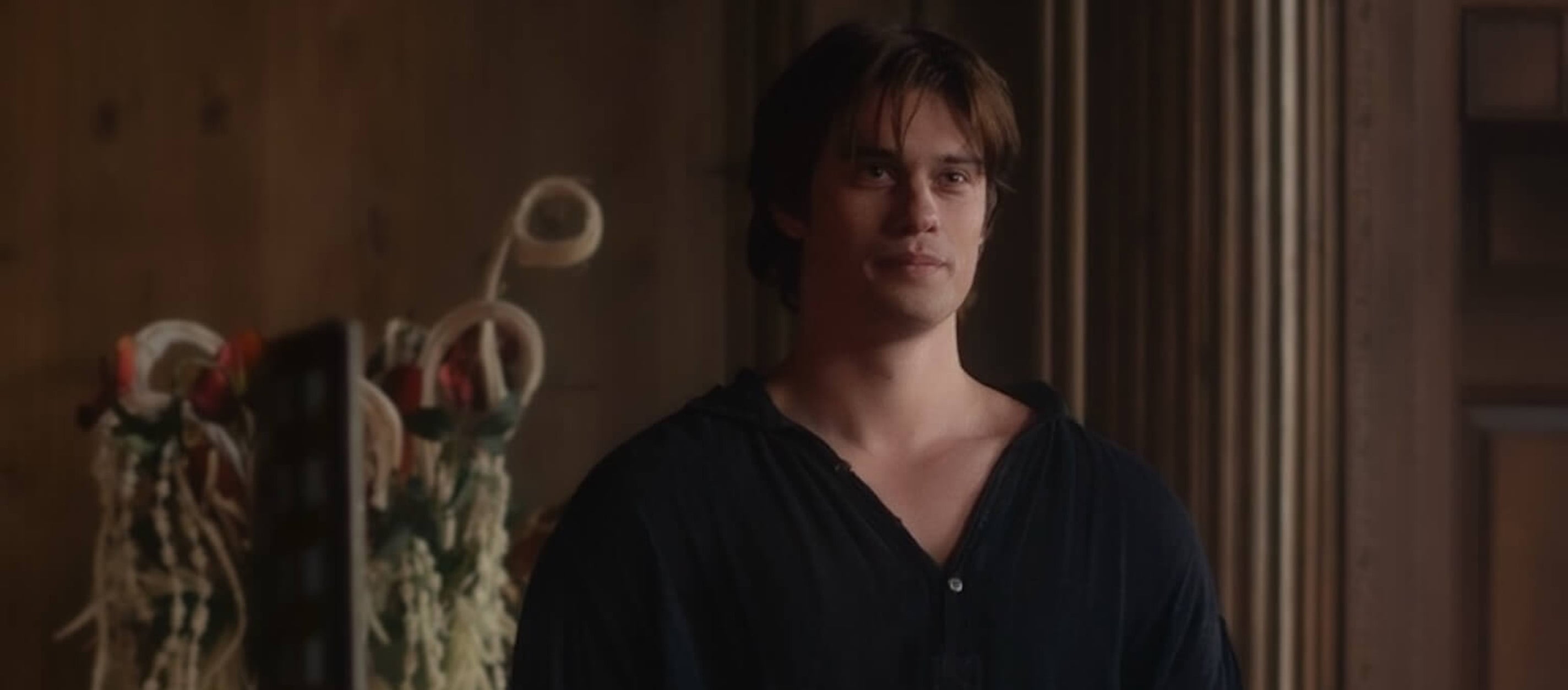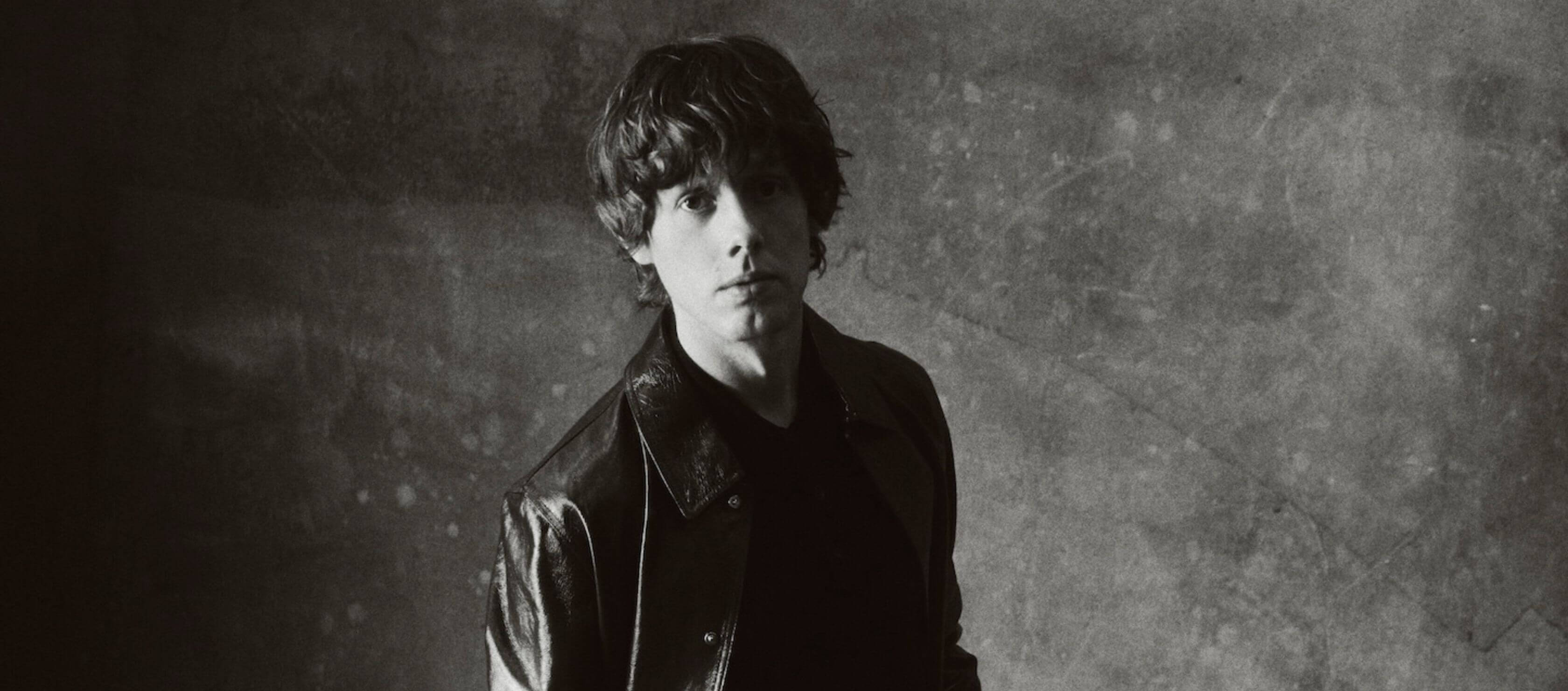As his West End debut in Samuel D. Hunter’s Clarkston with Joe Locke and Sophie Melville draws to a close, the Scottish-Italian actor sits down with Man About Town to reflect on momentum, maturing craft, and the thrill of a year spent levelling up.
It’s 4:30 on a Thursday afternoon in the British capital, and I’m darting around West London like a damsel in distress. A delayed bus and a cancelled train have conspired to get me here, and now I’m posted at the back entrance of the Trafalgar Theatre, eyeing the handful of flights of stairs separating me from my companion for the next half hour. It all feels oddly glamorous: the West End at twilight, slipping in through staff doors, my picture snapped and clipped to a lanyard for access. A sharp change of scenery from the last time I caught up with Scottish-Italian actor Ruaridh Mollica – last year, in a sticky East London pub, fresh off his breakthrough turn in Mikko Mäkelä’s Sebastian.
Back then, Mollica was crowning a whirlwind year that began with a Sundance premiere and ended with a BIFA nomination, marking him as one of the most compelling breakout talents emerging from the UK. Now, he’s a Scottish BAFTA nominee – and his name (and face) are splashed across the Trafalgar Theatre as he makes his West End debut in Hunter and Jack Serio’s Clarkston, alongside Heartstopper’s Joe Locke and Iphigenia in Splott’s Sophie Melville. His feet are also beginning to poke through the Marvel Cinematic Universe, with his upcoming role in the WandaVision spin-off Vision Quest, where he brings fan-favourite Tommy Maximoff to life.
Theatre, though, feels like a particularly pivotal step in his evolution. “And a whole different ball game,” he tells me with a grin as we sit down backstage for a catch-up. It’s a far cry from his early days in youth theatre near the port town of Leith, Edinburgh – and an entirely new discipline compared to his silver-screen experience. “I feel like [theatre] refines your instincts as an actor because you’re going from start to finish and have to follow what feels right in the moment,” he says. “Being alive in the character for that long is something I’d never done before.”
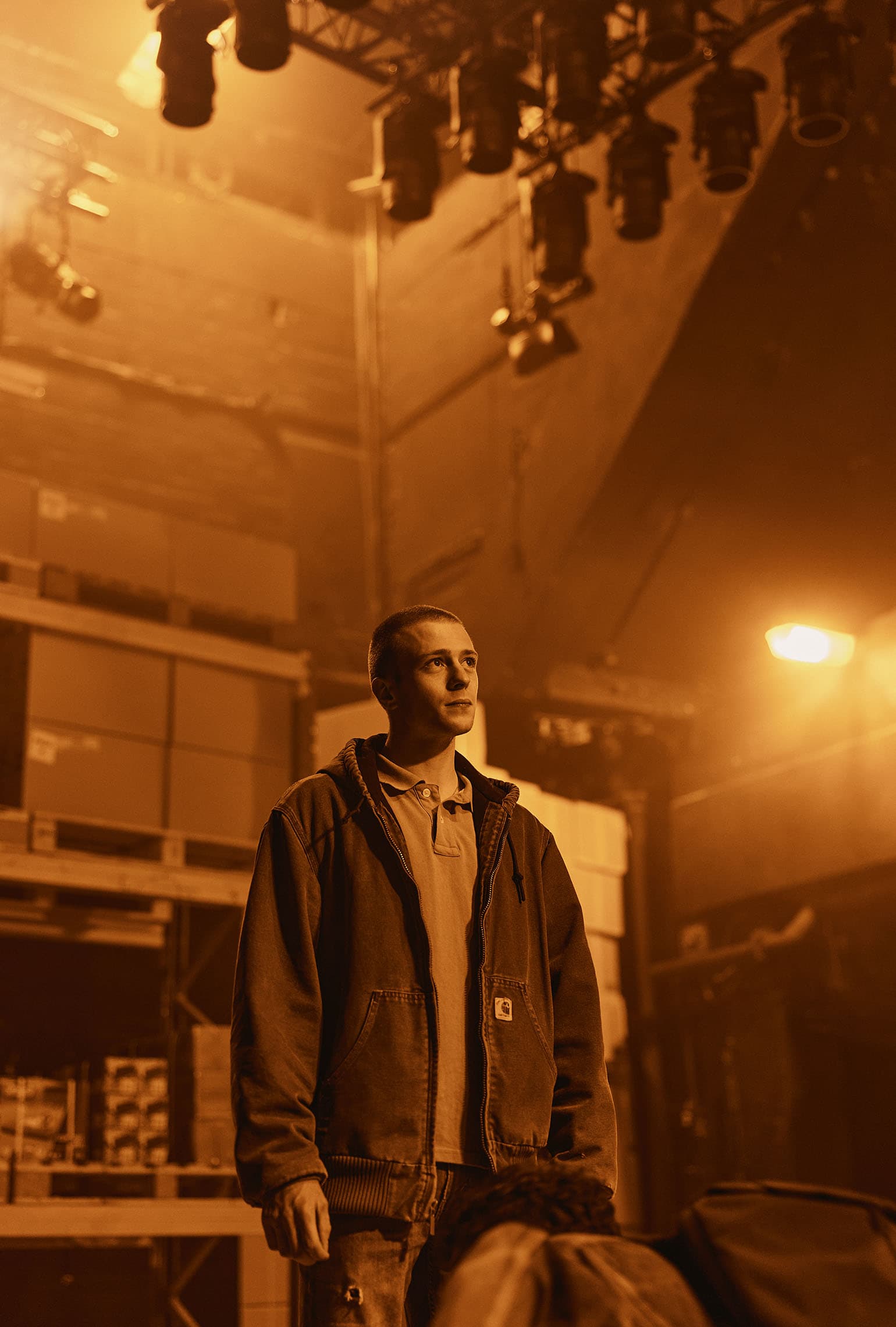
Photography by Emilio Madrid
In Clarkston, Mollica slips into the shoes of Chris, a Costco worker from Lewiston, Idaho, wrestling with his identity when he meets Locke’s Jake during an evening shift – a queer man confronting a Huntington’s disease diagnosis while tracing William Clark’s Pacific trail. The play unfolds with love, loss, and a heart-rending portrayal of generational pain, as Chris’ mother, Trisha (Melville), battles addiction. And behind the scenes of this quietly devastating story lies an even sweeter one, a makeshift family forged between the cast.
As he prepares to part ways with the production (on at the Trafalgar Theatre for one more weekend, until 22 November), Ruaridh Mollica reflects on the joys and jitters of the stage, finding his footing in the industry, and the hard-won advice he hopes to pass down to a new generation of rising stars as he continues to cement himself in London’s creative landscape.
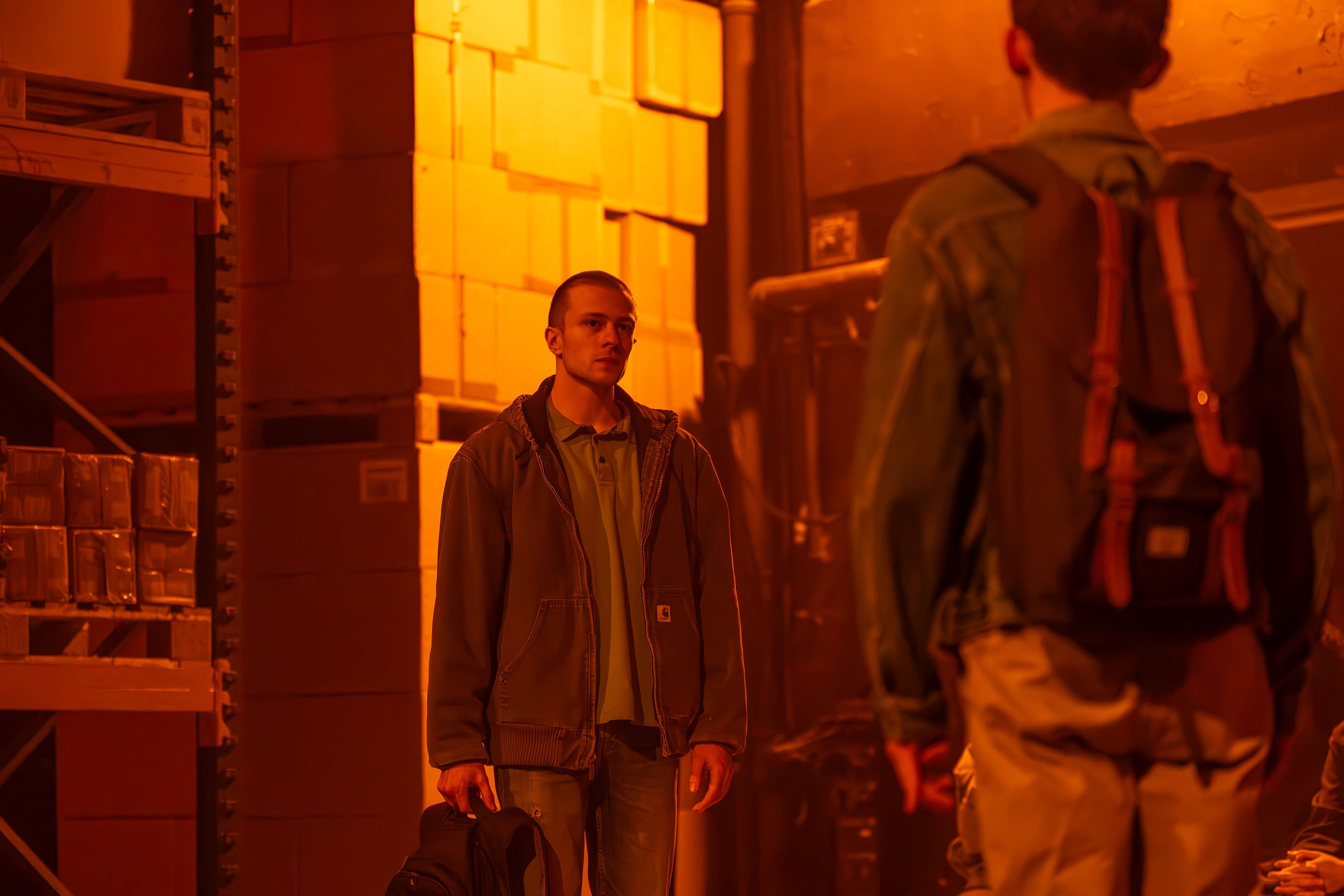
Photography by Marc Brenner
Ruaridh, tell me all about this new chapter. When did you first hear about Clarkston?
I think it was June this year. Joe had been attached for a while, and my agent said, “This is a really good opportunity – it could be your first big West End show.” I met Joe the week after, and we did our chemistry read with the director and writer. It went really well. I walked out thinking, “Oh God, I really want this now.”
You started in theatre, didn’t you? Doesn’t it feel like coming home?
Youth theatre [laughs], so not really. Youth theatre was always tiny parts – we were about twelve, running around a gym hall, which I think used to be an old military drill hall. This is a whole different ball game.
When was the moment you realised, “wow, this is totally new – this is a whole new craft I need to learn?”
Definitely day one of rehearsal. I thought, “Wow, we have such a long rehearsal period. What’s all this for?” Then you realise how much you’re choreographing – every scene, every emotional beat – and the stamina is insane. Ninety minutes straight, non-stop. Rehearsals were all day, then a run in the evening. I remember the first week thinking, “I don’t think I can do it”. It was so different. I’m used to being on set, where you wait around all day, do your emotional bit, maybe redo it, have a coffee break, then do it again. And every day is something new. Whereas this is the same scenes, over and over – it felt bizarre at first.
Did approaching this project at such a sprint shift your perspective at all? With Sebastian, you had months to sit with the story before stepping onto set – this time it was more of a dive-straight-in situation.
Totally. And it’s been really nice, I feel like [theatre] refines your instincts as an actor because you’re going from start to finish and have to follow what feels right in the moment. You’re directed to tell the story properly, of course, but you still want to feel everything and play off each other. Being alive in the character for that long is something I’d never done before. It’s like, “What do you mean I’m still the character when I’m just standing over here?” You start embodying them in a way I hadn’t before, for such a long period of time.
What about this story made you really want to be involved in the project?
It’s just beautiful and heart-wrenching. It’s about these people, their lives, what they’re going through. Every conversation moves the story or their relationships forward – sometimes a step closer, sometimes a step back. Especially with Sophie [Melville], who plays my mum. I love the writing. It feels so truthful.
Did you feel like spending every day together helped you grow closer as a cast? You get a kind of time you don’t get on screen, where you can really grow together as performers.
Yeah. The performances change the tiniest bit every night. Maybe you try a slightly different choice on one line and now you know how they react. But mainly, we just spend so much time together outside the job. You get so close. On stage, you listen better because you kind of know what each other are thinking, because you know them so well. And you trust each other – if you mess up, they’ve got your back. It feels like we can let our guards down and just be alive together.
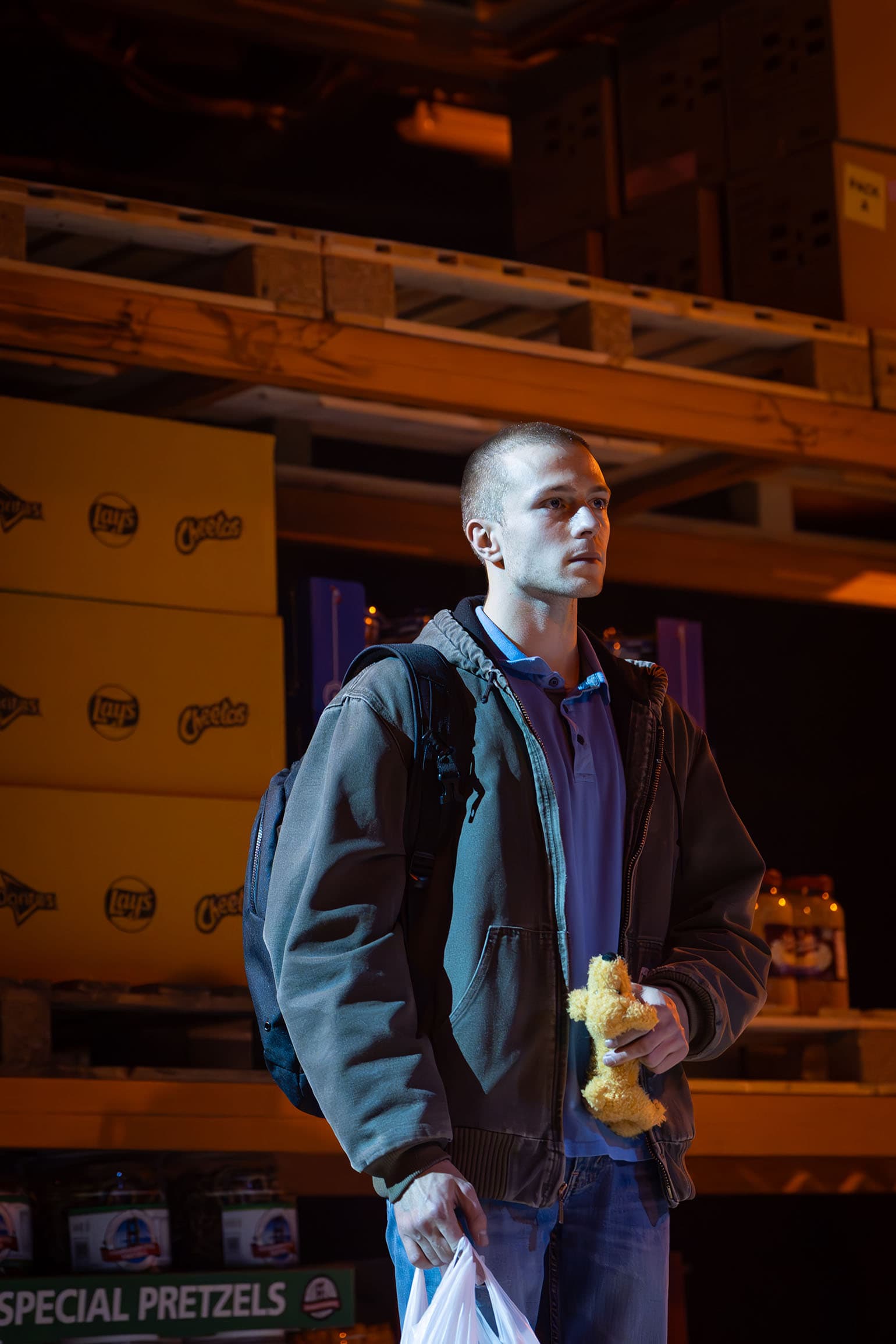
Photography by Marc Brenner
What first caught your attention about this character, and how do you connect with him?
I connect with Chris through his underlying sensitivity. He’s got a harder exterior than I do, but inside he’s full of ambition. He wants to be a writer, he wants to leave his small town and take on the world… but he’s scared. He has to look after his mum. Because of his family situation, he can’t put himself first. And that is really really interesting, he’s in this place in life where he’s got this duty to something bigger than himself, so his life is on hold. And that’s quite tough, and so many people go through that. It’s like a coming-of-age moment, and he finds freedom through Joe’s character.
Do you ever leave a show feeling like you understand him differently because of something that clicked that day?
Yeah. I think it happened in the third week of shows, once we relaxed into it. Being on stage in front of everyone that first week was terrifying. Your adrenaline spikes. It still does. But now I can step on and relax into it. [And that allows you to be] more present, and when you’re really present, you make discoveries. Some shows are just unbelievably present, and those are the ones where you find new things.
How was your character prep? Did you use any specific materials?
A lot of it was in the writing. But I do listen to sad music before going on [stage], like Elliott Smith, old Radiohead, Johnny Cash, to get into that place. I’d look at photos of Clarkston, Washington before going on, since in the play we’re always looking out over the river. Seeing the scenery right beforehand really helps.
Also, my character’s from Lewiston, Idaho, and funnily enough I was actually in Idaho a couple months ago. Total coincidence. One of my best friends is from there, so I went – great research trip.
How was it?
Beautiful. Big lakes, mountains, trees. Stunning. I liked it.
Looking forward – is theatre something you want to keep doing?
Yeah, totally. I’m loving it. I’m tired, but loving it. I’d love to do more. It’s a world that I was just never a part of, I didn’t grow up seeing much theatre, not at uni either, not even when I moved to London. Only in the last few years have I started going more. And it’s exciting, and different. It feels like the most authentic form of performance. Your friends and family come see you, then you see them after. TV is different, they watch it a year later. It feels detached. Theatre has a community around it.
And a Scottish BAFTA nomination! How does it feel?
So exciting. I woke up on the 1st or 2nd of October to a text from my agents saying congratulations. I was like, “What?” Then BAFTA Scotland tagged me on Instagram and I realised. I was buzzing. I haven’t had much time to think about it because of the show, but it’s amazing.
A new set of BIFA nominees will be announced this month. If you could give advice to newcomers in the UK scene, what would you say?
This industry is so weird. Find joy in your day-to-day life and in connections outside the industry. Things change suddenly, especially with things like a BIFA nomination. Everything can start moving faster and feel bigger. But don’t let it have too much weight. Enjoy it, take it in – but also chill out.
Clarkston runs at Trafalgar Theatre until November 22. More information here.
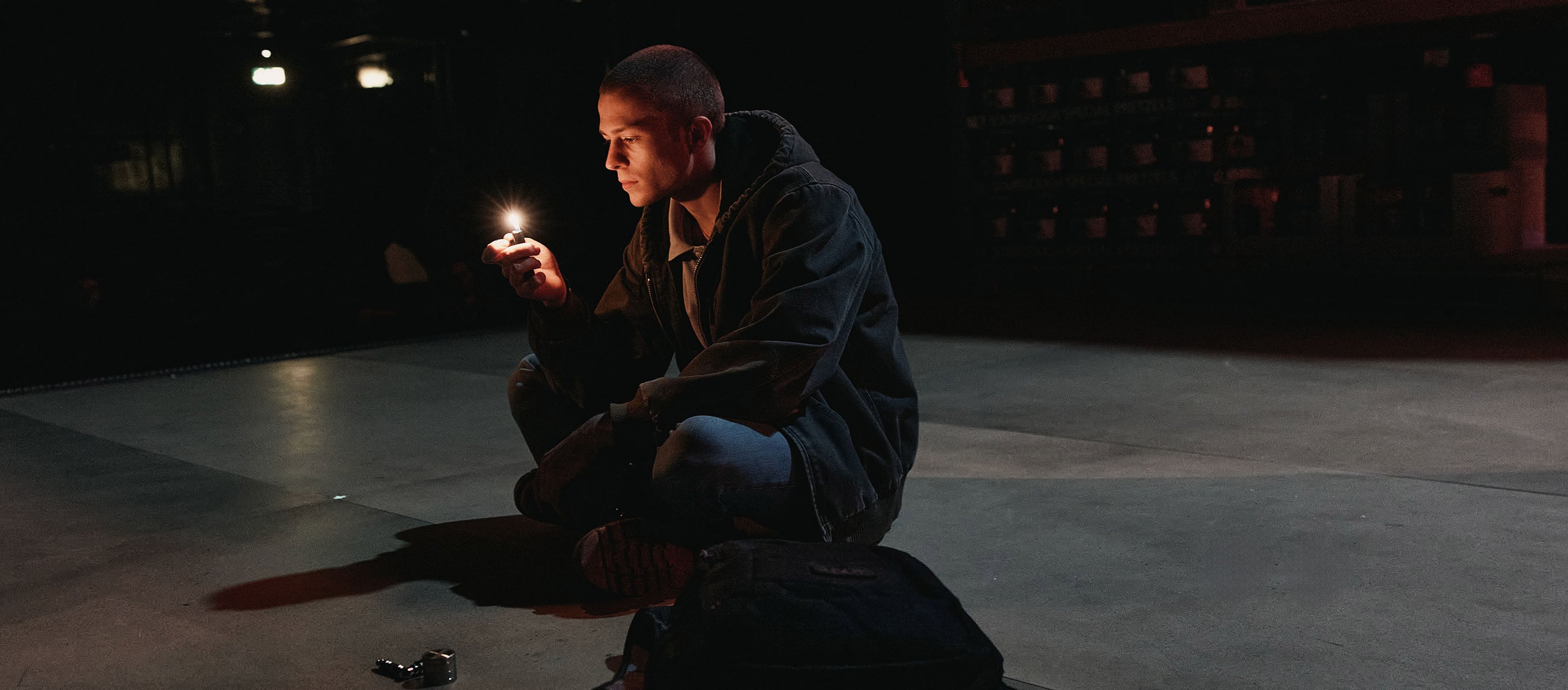
![Picture of “This Mixtape Is Kicking The Door Open To The [Tsatsamis] Project”: Tsatsamis Talks Tsycophant](/_next/image?url=https%3A%2F%2Fadmin.manabouttown.tv%2Fwp-content%2Fuploads%2F2026%2F02%2FTsatsamis-Hero-export-768x335.jpg&w=3840&q=85&dpl=dpl_GwYtxMeHtoBZdDSHj1tcpGrG3Czy)
